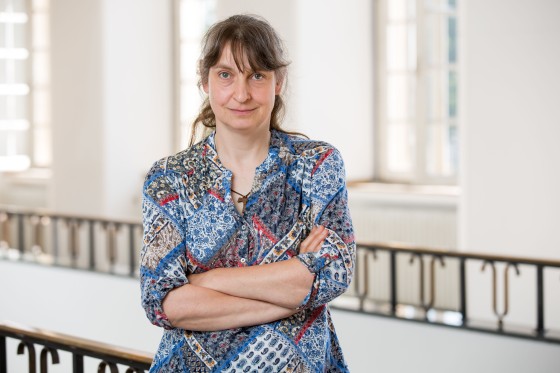
Collaboration with eyes wide open
Li Wang wants to gain his doctorate at the University of Münster. He has excellent qualifications, has fantastic grades and can support himself financially. He speaks fluent English and passable German. This fictitious dream candidate is a citizen of the People's Republic of China, his scholarship is paid for by the Chinese state, his home university is on the list of universities with close links to the military, and the degree he is aiming for is Dr. rer. nat. So: is that the end of the dream?
But what if Li Wang wants to obtain a Dr. phil.? And is it a different situation perhaps if the candidate is called Arian Baba and comes from Teheran? Or if it is Olga Petrowa from St. Petersburg in Russia? Might it be better if I leave my laptop at home if I travel to China or Russia? How do I handle the publication principle of “open access” if, quite possibly, “closed shop” is advisable? And will the drone that I want to use to explore some geological features in Sudan bring me into conflict with the Ministry of Foreign Trade or, possibly, even the secret services there?

Arian Baba and Olga Petrowa, by way of contrast, will not be getting any visa because the rules applying to states such as Iran and Russia, which are subject to embargoes, are much stricter than for the People’s Republic of China. If Arian Baba wants to study Philosophy at Münster, matters will look more promising for him. Olga Petrowa, on the other hand, will have to stay at home if, in the time leading up to her application, she has been working at a Russian state institution – for example at a university, as an educationalist.
But: what if approval has been given for Li Wang but his host at Münster University still has misgivings? Doctoral student Li can be supervised for his PhD – but whether that would be such a good idea is still anything but certain. What about people in a working group – when he is present – having open exchanges on topics other than Li’s own “harmless” research? Or, in a different context: Should I, as a visiting lecturer, teach at a Chinese university – even if I have permission to do so? How is the acceptance of a prize to be judged? In other words, what about academic integrity? Can this be jeopardised? Is any collaboration with dictatorships ethically acceptable?
Many German universities – technical universities in particular – have issued guidelines with regulations on “how to handle difficult partners” or, specifically, “dealing with China”. So far, the University of Münster has not done so because the personal assessment of any collaboration, of its scientific and human value, of any security issues or risks involved, can often be done much better by the academics in individual departments than by a central office. Nevertheless, there are cases in which there is room for doubt, of course. Until further notice, therefore, the principle to be applied at our University is: Each case is different – let’s talk about it.
Münster University has no wish to sacrifice any scientific cooperation or collaborations due to fears regarding rougher political winds. Nor, however, does it wish to enter naively into any and every collaboration. Decisions have to be made on a case-by-case basis on whether the scientific benefit justifies the risks, and what risks such (joint) research can actually entail. And these risks can vary greatly.
Generally speaking, dictatorships pay no special heed to the rights of their citizens. It may well be that our doctoral student has no desire to pass on confidential information – but that, under pressure, he may have to. The same is true for the returning visiting lecturer or for the cooperation partner after many years in China. The presence of someone with a state scholarship may make the other Chinese PhD students in the colloquium keep quiet; the colleague who toes the party line might make it impossible for his cooperation partner to engage in open discussions with him. In brief: approach any collaboration with your eyes wide open – and with as few illusions as possible.
Dr. Katharina Steinberg heads the Department of Research Affairs at the University of Münster.
This article is originally from the university newspaper wissen|leben No. 2, 29 March 2023.
